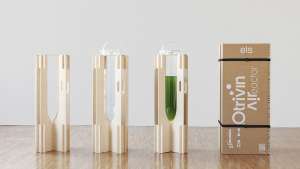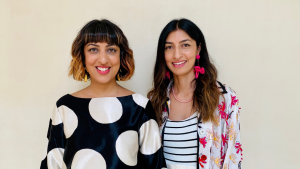Every 28 days half of the planet menstruates, yet millions of girls in Africa, South America and Asia cannot afford sanitary pads. For women in urban locations menstruating may be an inconvenient time of the month but for women and girls in rural areas, it impedes their lives. The lack of affordable sanitary pads and unhygienic bathroom facilities often leads to many days of missed work and school. In Rwanda, there are 2.8million menstruating females, for each of them who are working that is R3082 in lost income each year. An astonishing 18 per cent of female learners miss school because they cannot afford sanitary pads with many of them resorting to using unsafe alternatives such as mud, rags and leaves that could lead to infections and diseases.
Harvard Business School graduate Elizabeth Scharpf, learned of this phenomenon amongst factory workers while in Mozambique working at the World Bank. According to one of the factory owners, 20 per cent of the employees missed work for up to 30 days each year because of menstruation. The reason for this: Sanitary pads cost more than a day’s wages.
Using seed money from Harvard, Stanford and MIT as well as a non-profit organisation called Echoing Green, Scharpt launched SHE: Sustainable Health Enterprises and spent several years researching and engaging with materials experts. Finally, after much experimentation with naturally absorbent materials, banana fibres seemed to do the trick. “When the trunk of a banana tree is peeled back, it’s like an onion,” Scharpf explains. “The inside of the tree has different layers of fibers.” She enlisted the help of a North Carolina State University professor whose expertise lies in pulp and paper science together with the chemical engineering assistance from MIT. Together they developed a technique to transform the banana fibres into fluffy material that could provide the absorption ability of the “green” sanitary pads.
From a small manufacturing pilot project in Rwanda the project will be expanded into an industrial-scale factory that will produce 600 sanitary pads per hour and employ approximately 10 people. Currently, a 10-pad pack sells for R32.26 but SHE’s sanitary pads will sell for 50 cents once it is manufactured on a large scale. Presently SHE is working with 600 small-scale banana farmers in Rwanda with the majority of them being women. The organisation is also simultaneously working with the Ministry of Education in Rwanda to fast-track sanitary pad access to girls aged nine to 14 years old in the various schools.
“We have hundreds of people reaching out to us saying, ‘How can you help me do this in my neck of the world?'” said Scharpf. “I feel like as a founder, one of my goals has already been accomplished: helping start a global conversation.”
A donation of R1,400 can provide sanitary pads to keep 140 girls in school for a year. Go to sheinnovates.com to see how you can get involved.







